On Thin Ice: Global Impact of Climate Change in the Arctic
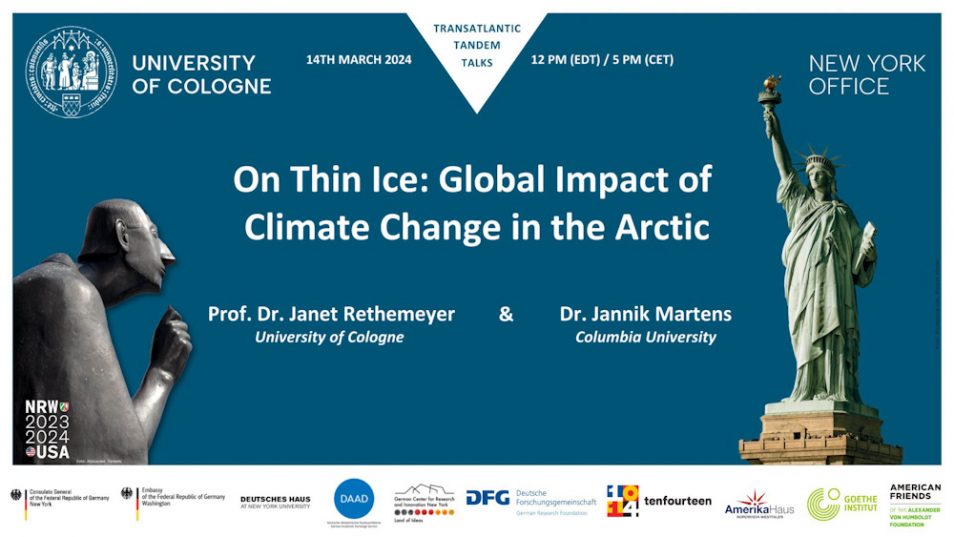 © University of Cologne
© University of Cologne
This Transatlantic Tandem Talk on March 14, 2024, 9 AM PDT / 12 PM EDT / 5 PM CET, featured an expert discussion between Prof. Dr. Janet Rethemeyer from the University of Cologne, Germany, and Dr. Jannik Martens, UoC alumnus and researcher at Columbia University.
Event Recording
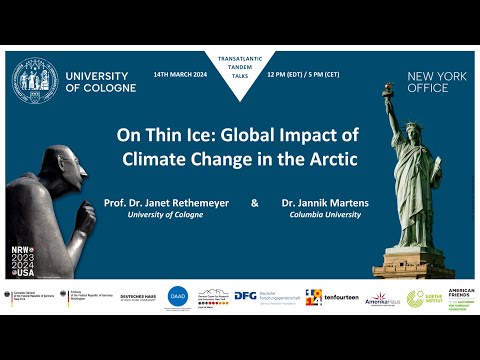
To play the video, click the thumbnail. Once activated data will be transmitted to the respective provider. Watch on YouTube
The Arctic is warming at rates three times faster than the global average. The melting of ice sheets and glaciers increases concerns about global sea-level rise, while the thawing and degradation of Arctic permafrost soils may release large amounts of greenhouse gases, potentially causing additional warming. Although changes in the Arctic may impact the global climate system, thus affecting societies all over the world, our knowledge of the ongoing transformations in this environment remains limited.
A better understanding of the Arctic region is needed for scientists to predict future changes and develop mitigation and adaptation strategies. To this end, researchers study climate archives such as ocean and lake sediments and permafrost to find clues about how past changes in Arctic climate affected the environment.
In this Transatlantic Tandem Talk Prof. Dr. Janet Rethemeyer from the University of Cologne, Germany, and Dr. Jannik Martens, UoC alumnus and researcher at Columbia University, discussed:
- Current frontiers and open questions in Arctic research, seeking to illuminate past climate changes and the potential impact of permafrost thawing on the global climate system
- Recent Arctic field expeditions and their findings
- International collaborations between the University of Cologne and leading US-based institutions to tackle a topic that affects us all
Following the Transatlantic Tandem Talk was a virtual tour through the core repository of the Lamont-Doherty Earth Observatory of Columbia University in NYC which houses over 20,000 sediment cores from across the globe.
Event Information
March 14, 2024, 12:00 PM to 1:00 PM
online
Organizer(s): University of Cologne New York Office, Consulate General of the Federal Republic of Germany in New York, German Embassy in Washington D.C., Deutsches Haus at NYU, DAAD North America, German Research Foundation (DFG) North America, German Center for Research and Innovation (DWIH) New York, 1014 Space for Ideas, Goethe Institute New York, AmerikaHaus NRW, American Friends of the Alexander von Humboldt Foundation.
Our Experts:
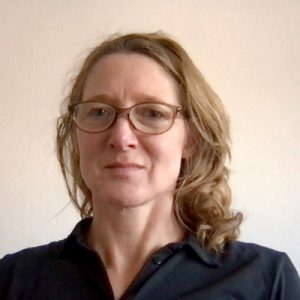
Dr. Janet Rethemeyer is Professor for Organic Geochemistry and Radiocarbon Dating at the Institute for Geology and Mineralogy at the University of Cologne. She is also running the radiocarbon sample preparation lab of the CologneAMS dating center, which applies novel techniques such as compound-specific radiocarbon analysis of source-specific biomarkers and of greenhouse gases. Her research covers a broad range of topics including present and past carbon cycling in terrestrial and marine systems, related microbial mediated biogeochemical processes and greenhouse gas fluxes as well as the reconstruction of paleoenvironmental conditions. She works in different regions ranging from polar to tropics and on different geological timescales. Rethemeyer has been studying the Arctic carbon cycle for 15 years, more specifically, the storage and release of organic carbon from thawing permafrost soils. A key question here is how quickly the organic matter can be broken down after thawing and how much of this ancient organic carbon is released into the atmosphere. In recent years, her research group has worked in the Siberian Arctic in particular, where some areas have extremely ice-rich permafrost, which forms one of the so-called tipping elements of the climate system. Currently, she is involved in a major research project analyzing and modeling methane fluxes in thawing permafrost, which aims at improving climate predictions. Rethemeyer has a Diploma from the University of Bremen and a Ph.D. degree from the University of Kiel.Dr. Janet Rethemeyer, Professor for Organic Geochemistry and Radiocarbon Dating, Institute for Geology and Mineralogy, University of Cologne
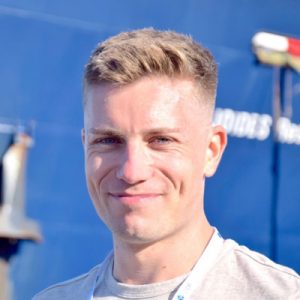
Dr. Jannik Martens is a Postdoctoral Research Fellow at the Lamont-Doherty Earth Observatory of Columbia University with an interest in climate change and carbon cycling in polar regions. His research focuses on climate feedback processes related to amplified Arctic warming across land and ocean environments, which may impact the global climate system. This includes processes such as the release of carbon and greenhouse gases from thawing permafrost, the melting of Arctic ice sheets, and the rapid acidification of the Arctic Ocean due to rising atmospheric CO2 concentrations and declining sea ice. A central aspect of his research involves studies of past climate periods as “natural experiments,” such as during warming events like the post-glacial climate transition 17,500 to 10,000 years ago and much warmer interglacial periods in the more distant past, such as around 120,000 or 400,000 years ago. These periods serve as references for understanding climate transformations and provide context to ongoing and future climate states. To elucidate carbon cycling and climate variability, Martens analyzes organic matter and microfossils in terrestrial and marine sedimentary archives, using molecular analysis as well as isotopes. For his research, he has repeatedly traveled to the Arctic in land- and sea-going expeditions, including a recent 2-month expedition onboard the JOIDES Resolution to NW Greenland in 2023. Martens obtained his B.Sc. and M.Sc. at the University of Cologne and holds a Ph.D. degree from Stockholm University, Sweden.Dr. Jannik Martens, Postdoctoral Research Fellow, Lamont-Doherty Earth Observatory, Columbia University
Welcoming Remarks by:
Dr. Eva Bosbach, Executive Director, University of Cologne New York Office
Christian Hänel, President, American Friends of the Alexander von Humboldt Foundation
Moderation by:
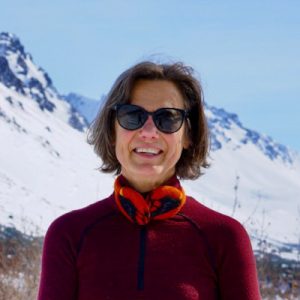
Betsy Baker is an international lawyer based in Alaska. Her work on ocean law and Arctic policy builds on 25+ years of experience as an author, consultant, law professor, and director of an Alaska marine science organization. Betsy Baker consults on research, strategy and policy projects involving Arctic and international marine activity in three general areas: Marine resource development and conservation, international environmental law, and Law of the Sea. Baker continues to draw on decades of teaching experience at Vermont, Minnesota, and Harvard Law Schools, most recently teaching Arctic Politics and Governance at the University of Alaska Fairbanks (2016) and lecturing on Arctic Maritime Law and the Law of the Sea for the Ted Stevens Center for Arctic Security (2022). Baker earned her law degrees from the University of Michigan (J.D. 1982) and Christian Albrechts University, Kiel, Germany (LL.M. 1994, Dr. iur. 2000), and her B.A. from Northwestern University (1978). Photo Credit: Beth RoseBetsy Baker, Lawyer
This event is part of the Transatlantic Tandem Talks series:
The Transatlantic Tandem Talks were established on the occasion of the 10th anniversary of the North America office of the University of Cologne in New York in the year 2021 in cooperation with its partners the Consulate General of the Federal Republic of Germany in New York, the German Embassy in Washington D.C., Deutsches Haus at NYU, DAAD New York, the German Research Foundation (DFG) North America, the German Center for Research and Innovation (DWIH) New York, 1014 Space for Ideas, the Goethe Institute New York, AmerikaHaus NRW, and as of 2023, the American Friends of the Alexander von Humboldt Foundation.
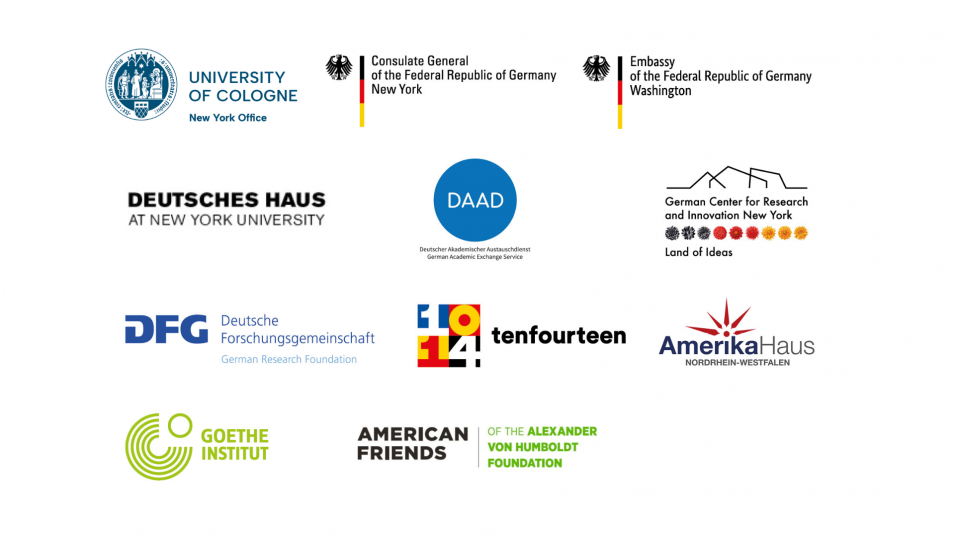
Disclaimer: The views and opinions expressed by the speakers do not necessarily reflect those of the DWIH New York and its partners. Moreover, reference to any specific commercial product, process, or service by trade name, trademark, manufacturer or otherwise does not constitute or imply its endorsement, recommendation, or support by the DWIH NY and other event organizers.
